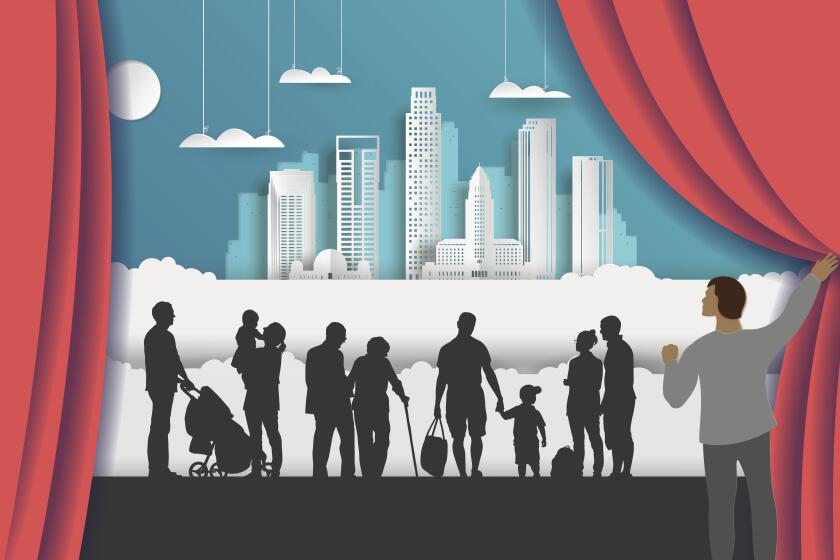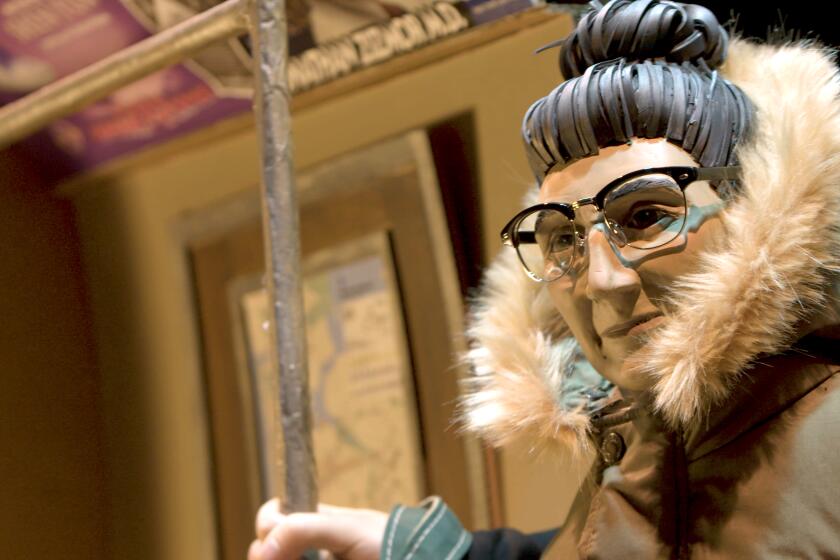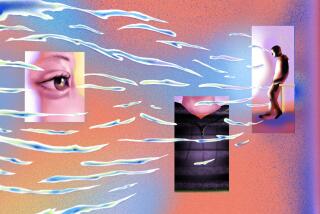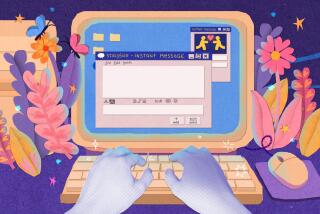Review: I went to the theater for the first time in 14 months. UCLA’s ‘Encounter’ is what I needed
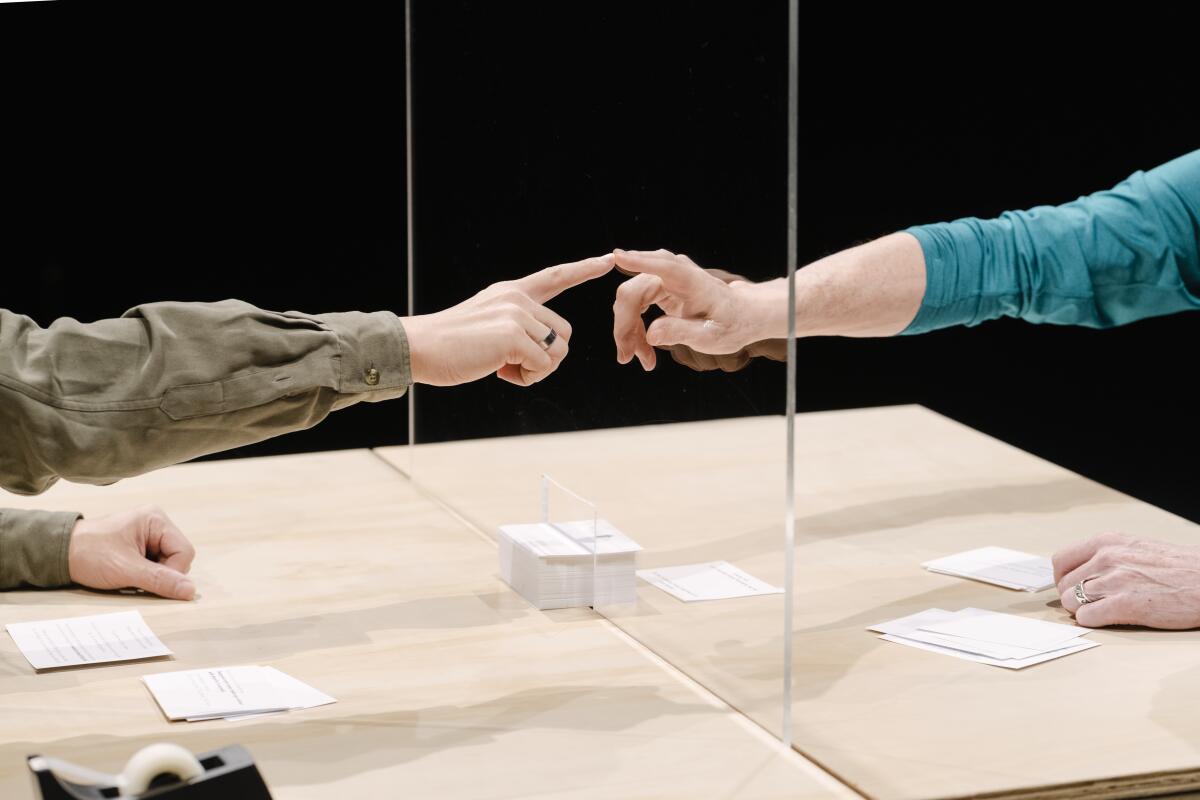
Transitions, as a wise psychotherapist would routinely remind me in my impetuous 30s, are necessary. Racing from one activity to the next is not only exhausting but also inefficient. Winding up requires winding down, whether it’s switching between parts of the day or phases of life.
These thoughts occurred to me as I did something Sunday for the first time in more than 14 months: I went to the theater. The occasion was “A Thousand Ways (Part Two): An Encounter,” the second offering in a trilogy by the experimental theater troupe 600 Highwaymen that is being presented by UCLA’s Center for the Art of Performance.
The first installment, “A Phone Call,” took place in December by telephone. Two strangers were paired for a quasi-conversation, guided by the automated prompts of what sounded like Siri’s great-grandmother.
The COVID-19 pandemic was out of control in California, stress was at a boiling point, and I found answering personal questions at the command of some creaky technology deeply disturbing. Hadn’t Mark Zuckerberg already extracted enough out of me?
I wasn’t sure what to expect in “An Encounter,” except that I knew I had to put on pants and shoes, get in my car, pay UCLA’s exorbitant parking fee, walk from Parking Lot 5 to Royce Hall, secure my mask, speak to the check-in person and wait instructions. This gauntlet felt almost insurmountable for someone whose outside world has shrunk to the supermarket and the tennis court. But, summoning a little Hillary Clinton strength, I persisted.
I’ve taken every precaution against COVID-19, but it wasn’t exposure I was worried about. I’m fully vaccinated and I trusted the safety measures that had been scrupulously worked out. No, what I felt seemed akin to the pressure an astronaut must feel inside the cabin of a spaceship as it reenters Earth’s atmosphere.
Perhaps my reaction was a touch exaggerated by knowing that I would be seeing the show with only one other person. And that, similar to “A Phone Call,” this other spectator and I would essentially be the act. I wasn’t just going to a performance. I had to perform myself!
With the next chapter of the pandemic comes a fear of returning to the roles we all used to perform, even among friends.
Audience members are scheduled over three Sundays into hour-long blocks. I opted for a midmorning slot on the first weekend — a time more common for church than theater, but most agreeable to one with my holy secular temperament. I wish venues would be less locked into the 8 p.m. postprandial habit going forward. It was a nice change to experience a performance with morning alertness.
Seated in the empty, vast auditorium at opposite ends of a table and separated by a pane of plexiglass, a perfect stranger and I were instructed on how to proceed by a large deck of notecards with arrows indicating whose turn it was. A young woman with a kindly demeanor was my interlocutor and scene partner.
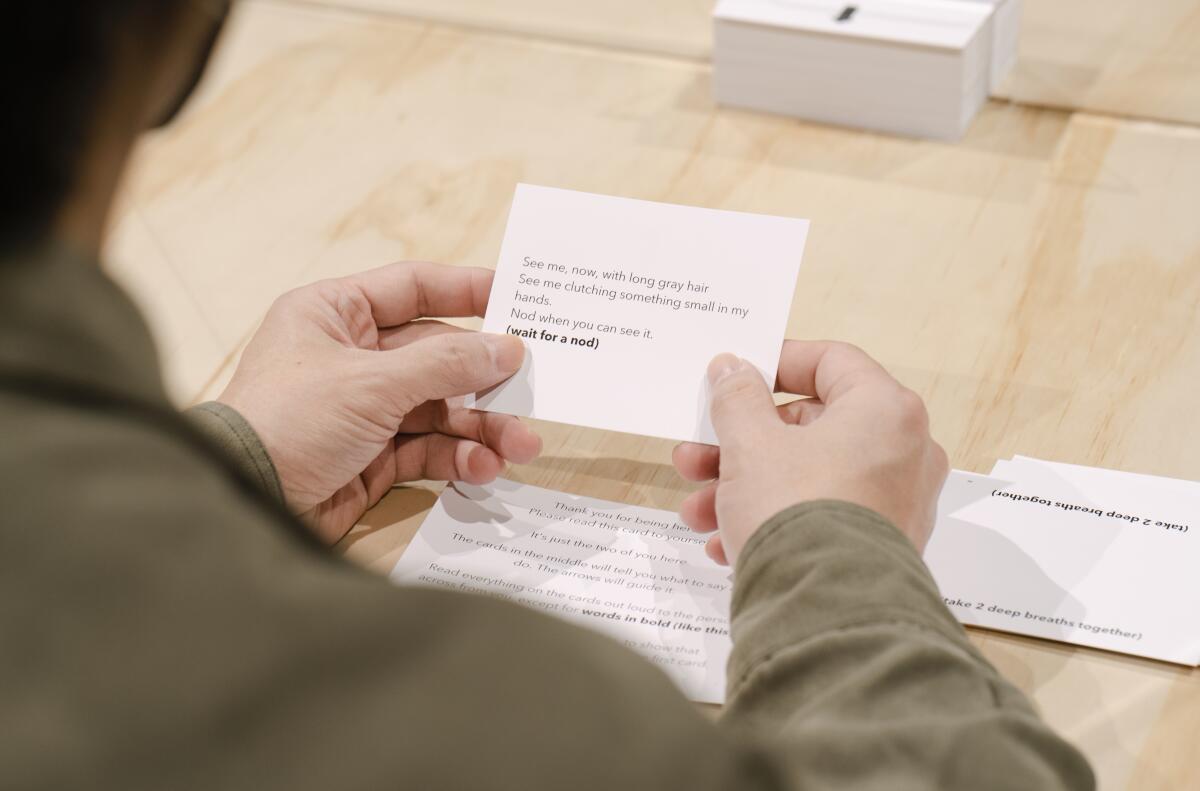
We were asked to breathe. Questions about our lives followed. Had I ever slept with a weapon? (No!) When did I last experience joy? (Hitting a winning backhand up the line the day before.) Had I had surgery? (Yes.)
We were asked to imagine scenarios involving the other person, caught in the rain, mingling at a party, being greeted by a loved one. We were urged to envision each other’s parents and to imagine what might be the other person’s special gift and delight.
A James Baldwin-William F. Buckley Jr. debate is fodder for a REDCAT presentation, and CAP UCLA’s “Plastic Bag Store: The Film” mixes gravity with whimsy.
The cards requested us to clench our fists slowly and then unfurl them at the same pace. We were to picture the other person holding a hammer, then a bird. Together, we were told to press our hands against the plexiglass, to make a box, the letter “S,” a bowl. Spatially clumsy, I followed the lead of my more graceful costar.
This exchange didn’t feel intrusive the way “A Phone Call” did. Yes, we were responding to anonymous prompts, but we were looking, respectfully and diffidently, at a fellow human being.
“An Encounter” often feels like one of those psychological experiments on university campuses that recruit students with a Starbucks gift card. But the piece seems ultimately designed for a therapeutic purpose: to get to us to see the malleability of the narratives we project onto each other.
Our stories change when our imaginations are encouraged to humanize rather than to generalize. Visual cues become more meaningful when endowed with empathy. “An Encounter” invites us to participate in our shared vulnerability.
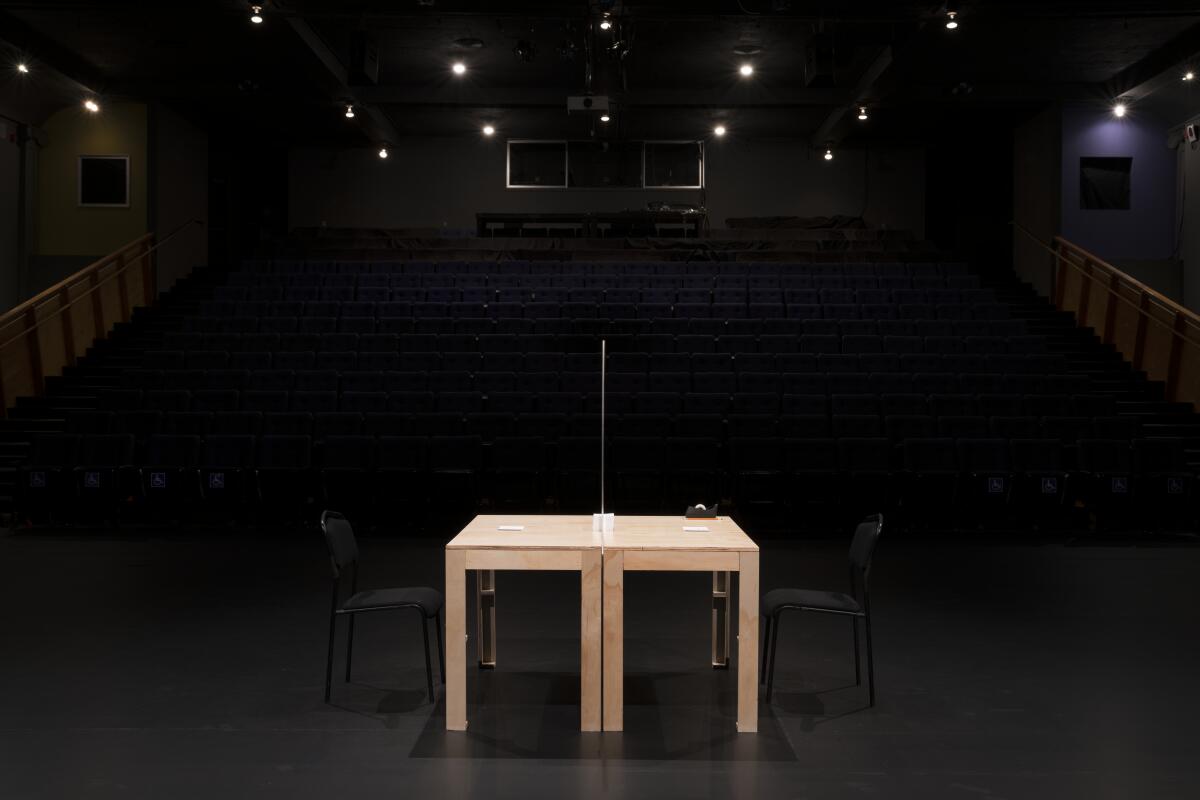
Part Three of “A Thousand Ways” will bring us together as a group, at a time when it is safe to gather again. Part Two is the transitional step that I badly needed but would normally deny myself.
I thanked my partner when I saw her outside, saying that I was glad to have done this experiment with her. And then we parted into our separate lives, touched by the presence of a stranger.
And isn’t that, I reflected while driving home, the ultimate purpose of theater?
'A Thousand Ways (Part Two): An Encounter'
Where: A CAP UCLA presentation at Royce Hall, 340 Royce Drive, Los Angeles
When: Various times Sundays through May 16
Tickets: $25 (following RSVP)
Info: cap.ucla.edu/rsvp/281
Running time: About 1 hour
More to Read
The biggest entertainment stories
Get our big stories about Hollywood, film, television, music, arts, culture and more right in your inbox as soon as they publish.
You may occasionally receive promotional content from the Los Angeles Times.
